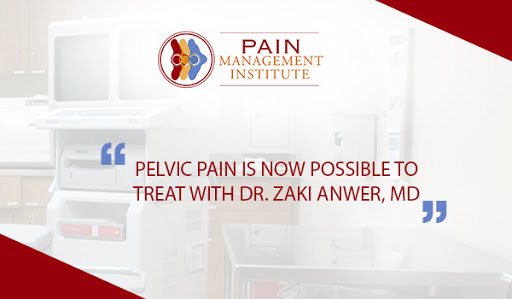If you or a family member having a hard time with pelvic organ prolapse or loss of voluntary control? You’re not alone. The National Center for Health Statistics of the Centers for Disease Control and Prevention states that 25% of U.S. women live with one or more pelvic floor disorders
What are Pelvic disorders and What causes Pelvic Pain?
Pelvic floor disorders cause severe pelvic pain and affect a woman’s pelvic organs, as the uterus, vagina, bladder, rectum and the linked muscles. The most common condition that causes pelvic pain are; loss of voluntary control, and pelvic organ prolapse.
Women with weak pelvic muscles or tears in the connective tissue may have problems controlling their bladder and bowels. They usually experience urine leakage, bowels gas or stool leakage, a problem clearing the bladder, and constipation. Also, some women feel or see tissue bulging out of the opening of their vagina. It might be possible to experience one or several symptoms of pelvic floor dysfunction.
Treatment Options for pelvic pain
There is a wide range of pelvic pain treatment. However, it is equally vital, the patients must seek treatment that best suits their needs and lifestyle
“Many patients with pelvic pain can be treated successfully without surgery.” said Dr. Zaki Anwer, MD.
“Different strategies as behavior therapy, physical therapy and medications are typically first step in treating patients with pelvic pain”
“I practice conservative methods first while treating my patients. However, for patients whose symptoms persist after non surgical treatment, surgery is considered to find relief.” said Dr. Zaki Anwer,MD at The Pain Management Institute
The basic aim of the pelvic pain treatment is to reduce symptoms and improve the quality of life. Dr. Zaki Anwer first diagnose the cause of the pelvic pain. Once the cause is diagnosed the treatment will be focused on the cause of pain. Many patients get optimal relief from a combination of treatments
Medications
Considering your condition Dr. Zaki Anwer, MD will recommend you medication including
- Pain relievers
- Hormone treatments
- Antibiotics
- Antidepressants
Other therapies
Sometimes medications are not enough in such cases you can opt for other therapies
- Physical therapy
- Spinal cord stimulation
- Psychotherapy
Surgery
While all the other traditional treatments fail to provide relief, surgery can be an option. The approach can be ;
- Laparoscopy
- Hysterectomy

